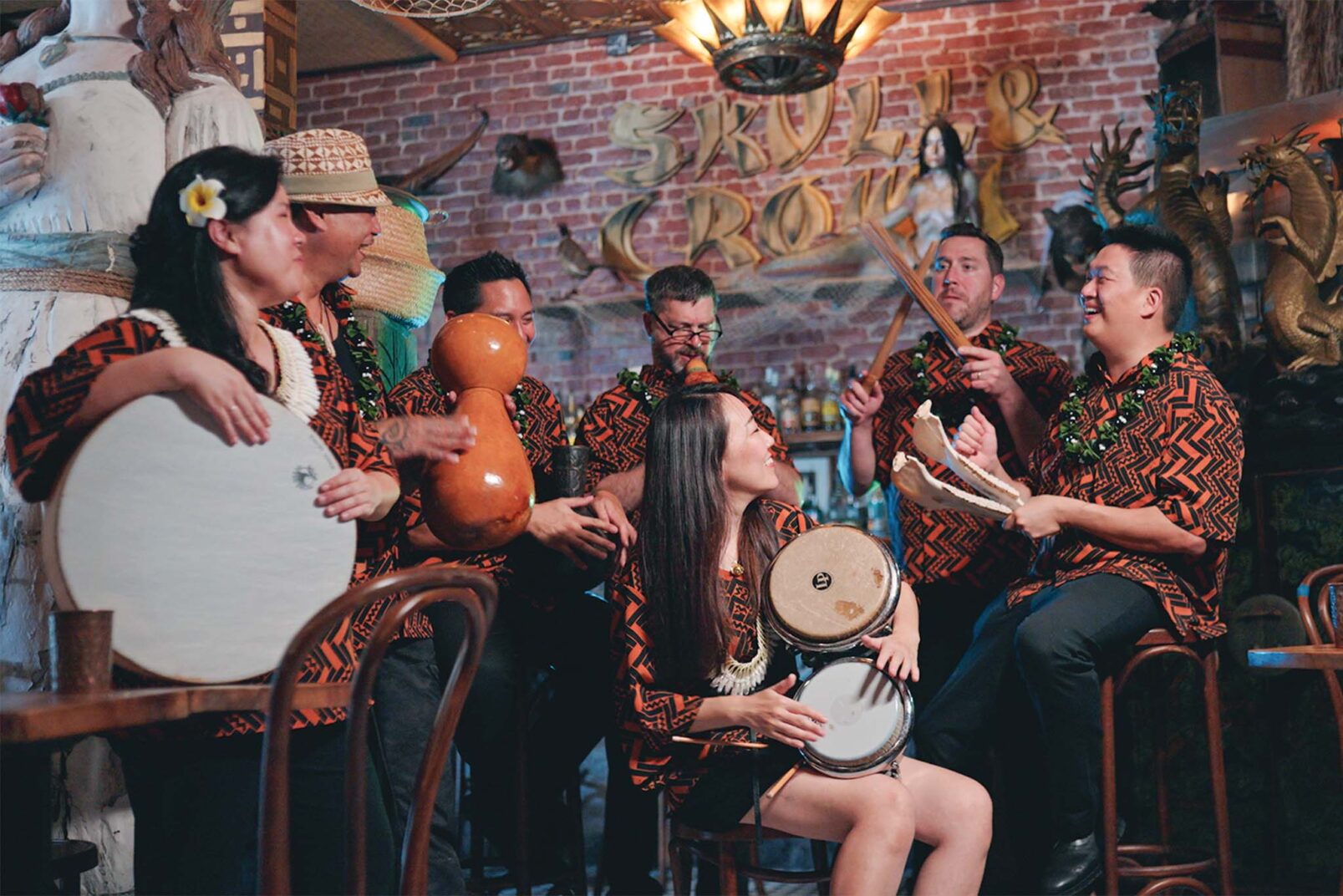In 2003, when Randy Wong and Abe Lagrimas Jr. established their musical partnership, they were motivated by a feeling familiar to many far-flung transplants: homesickness. The two friends were studying in Boston at the time—Lagrimas at the Berklee College of Music and Wong at the New England Conservatory—“experimenting as musicians with different concepts for being local boys away from home,” says Wong, who plays bass.
Two projects formed out of that experimentation, an ukulele-forward trio called Akamai Brain Collective, and Waitiki, an exotica quartet inspired by Arthur Lyman, Les Baxter, and other forefathers of the genre. They launched the two acts on the college lū‘au circuit, performing at Hawai‘i Club events at Boston University and Harvard, then observed which was more popular. “Waitiki is the concept that won,” Wong says.
Over the next two decades, Waitiki emerged as one of the preeminent acts in the revival of exotica, a form of tropical lounge music that emerged post-World War II in the U.S. and peaked in popularity leading up to Hawai‘i’s statehood. “Exotica music became so popular in the ’60s that it became cliché,” Wong says, adding that genres like surf rock came to replace exotica in appeal. Today, it’s music you’re most likely to hear in a tiki bar.
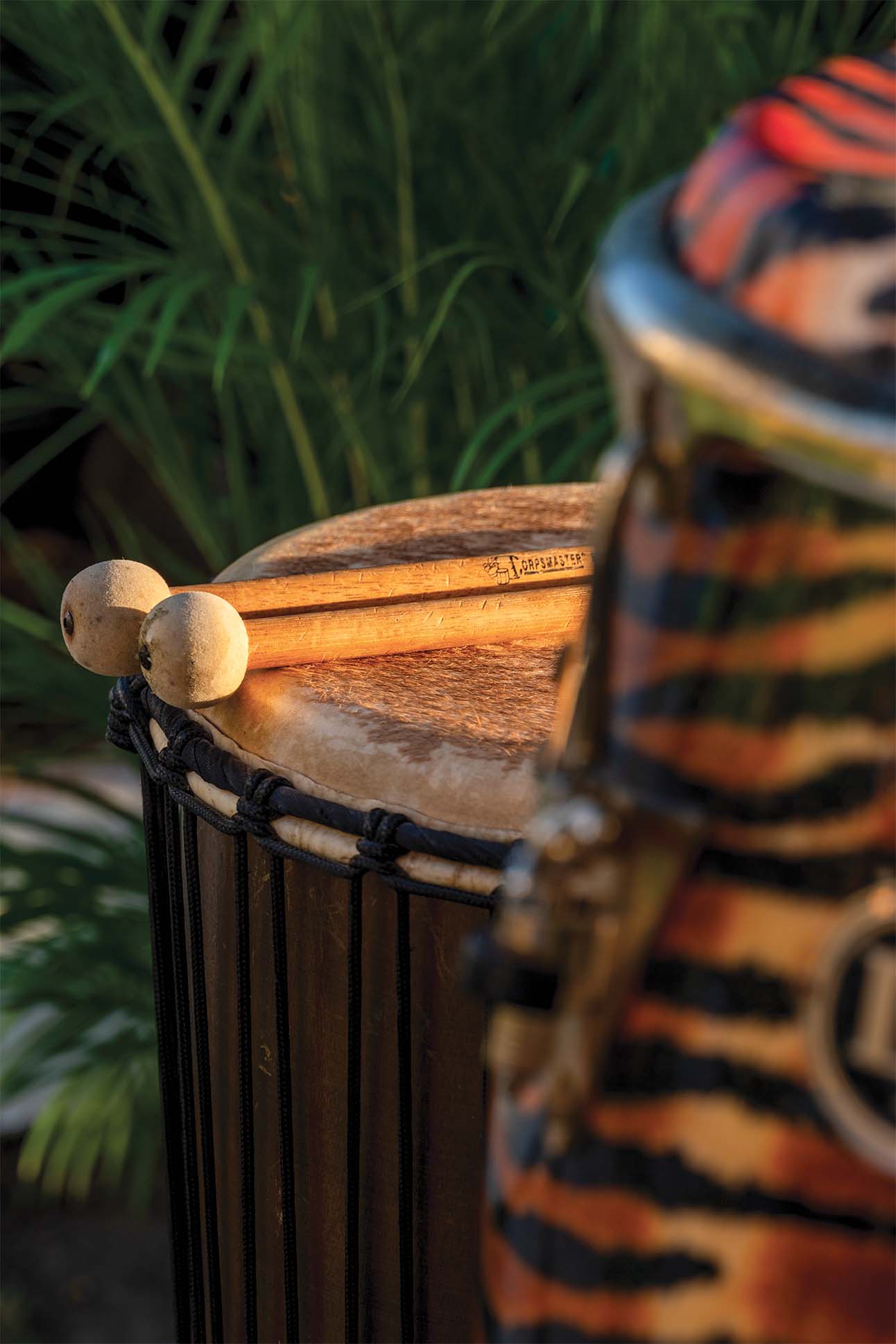
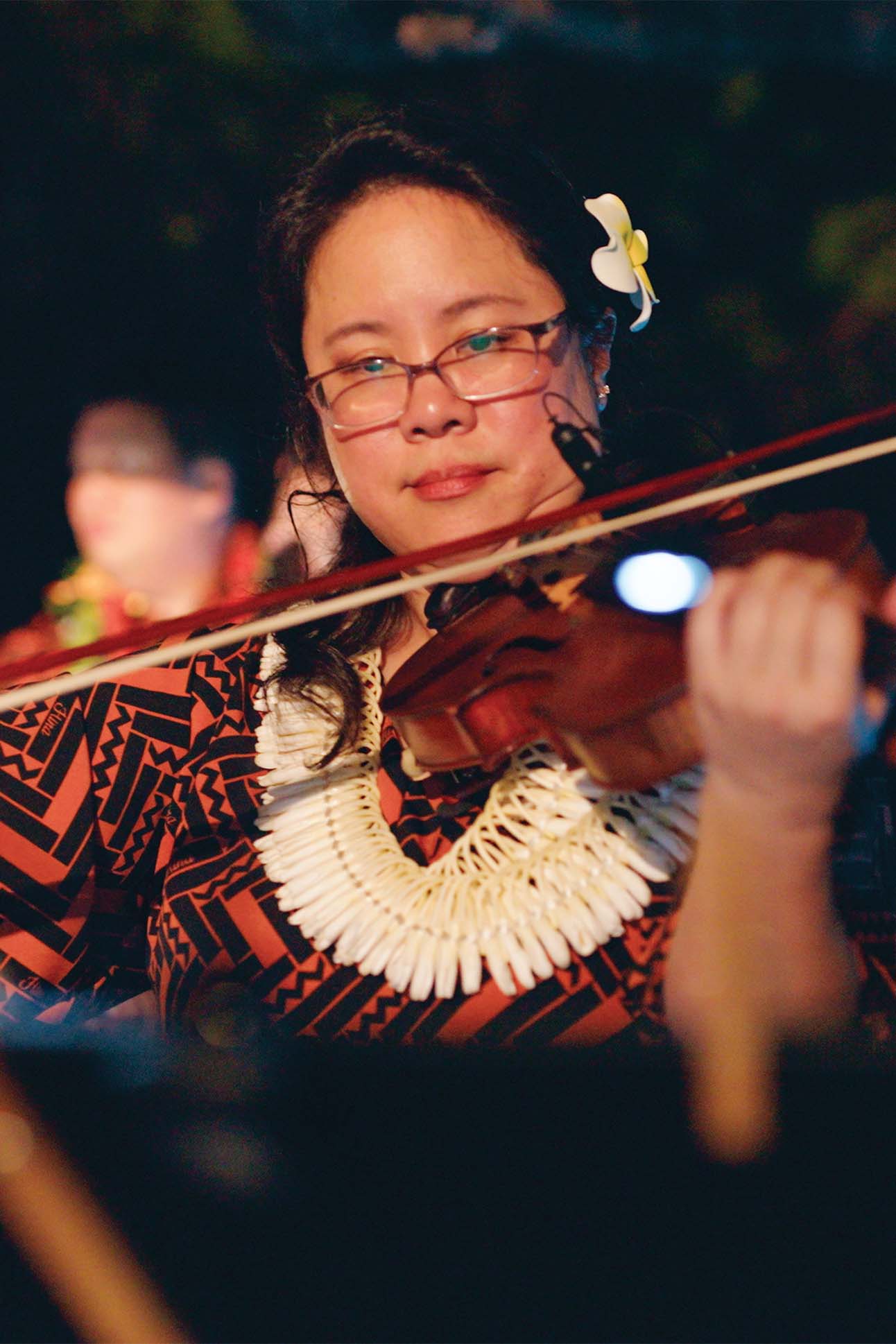
Part of Waitiki’s mission is to legitimize exotica—often considered a fringe genre—as an art form. In 2008, the group expanded to a septet, The Waitiki 7, and has since released seven records and performed internationally, in Germany and Mexico. Highlights include playing with a 25-piece big band honoring the work of legendary Mexican composer Juan García Esquivel and being accompanied by the Hawaii Youth Symphony to a gala that helped raise over $150,000 for music education programs statewide. More recently, in November 2023, Waitiki played two sold-out shows at Halekulani’s House Without a Key—a long way from the group’s more idiosyncratic beginnings.
“When I got involved with Waitiki, my second gig [with the band] was a bar mitzvah at the aquarium,” says Tim Meyer, who joined on woodwinds in 2005 and flew in from Mexico for the performances at Halekulani.
“With pop-and-lock dancers,” Wong adds.
“And my third gig was The Hukilau,” Meyer says, “which is a tiki festival in Florida.”
Wong smirks. “Don’t forget the Hot Rod Hula Hop in Columbus, Ohio, with the barnyard burlesque dancers.”
Growing up in Honolulu, Wong was exposed to exotica without really realizing it. His grandfather was friends with Arthur Lyman, considered one of the exotica greats alongside Martin Denny and Les Baxter. As a kid, Wong would accompany his grandfather to Waialae Country Club on the weekends to watch Lyman perform his signature vibraphone. “It was just really cool music,” Wong recalls of his early introduction to exotica’s unique style and sound.
It’s a genre that Wong feels is often misunderstood as an ironic, kitschy province of musical hobbyists, not professionals—minimized for being more about the fantasy of the South Seas than the actual place. In 2004, a Waitiki show in Boston was picketed by a small group of law students from Hawai‘i, who argued that exotica isn’t Native Hawaiian music. “But no one’s saying it’s Native Hawaiian music,” Wong explains, noting that a conversation with the picketers helped clarify where Waitiki was coming from. For Wong, Waitiki’s music is a living time capsule of the cultural landscape in post-war Hawai‘i, a tapestry of Polynesian, Asian, hapa haole, and Latin elements, set against the alluring backdrop of the golden age of travel. Echoing Martin Denny’s sentiment, “it’s pure fantasy,” and to further emphasize that element of escapism, the group created a fictional island from which they claimed to originate—Okonkuluku—and a complicated handshake that Okonkuluku “natives” use to greet one another.
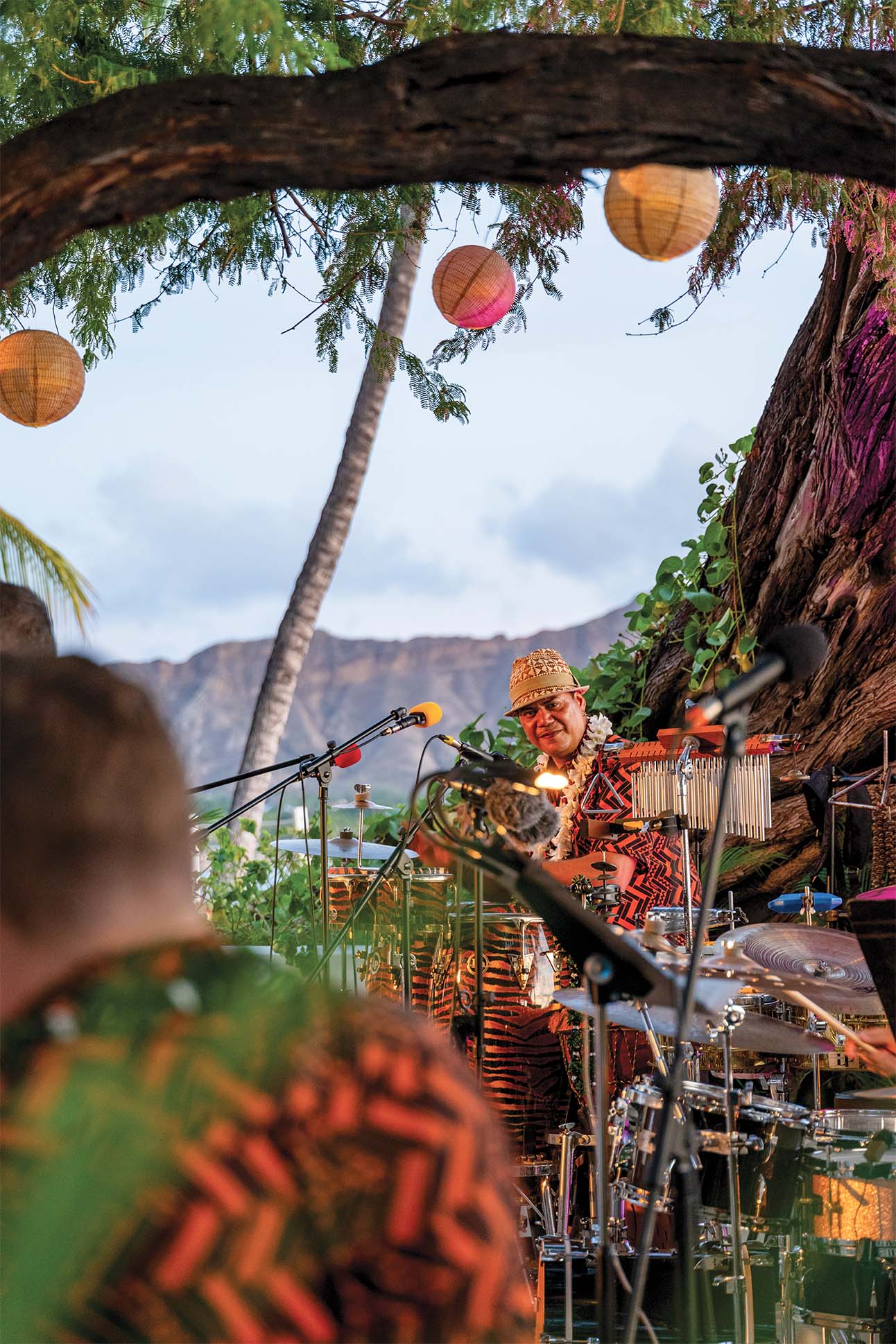
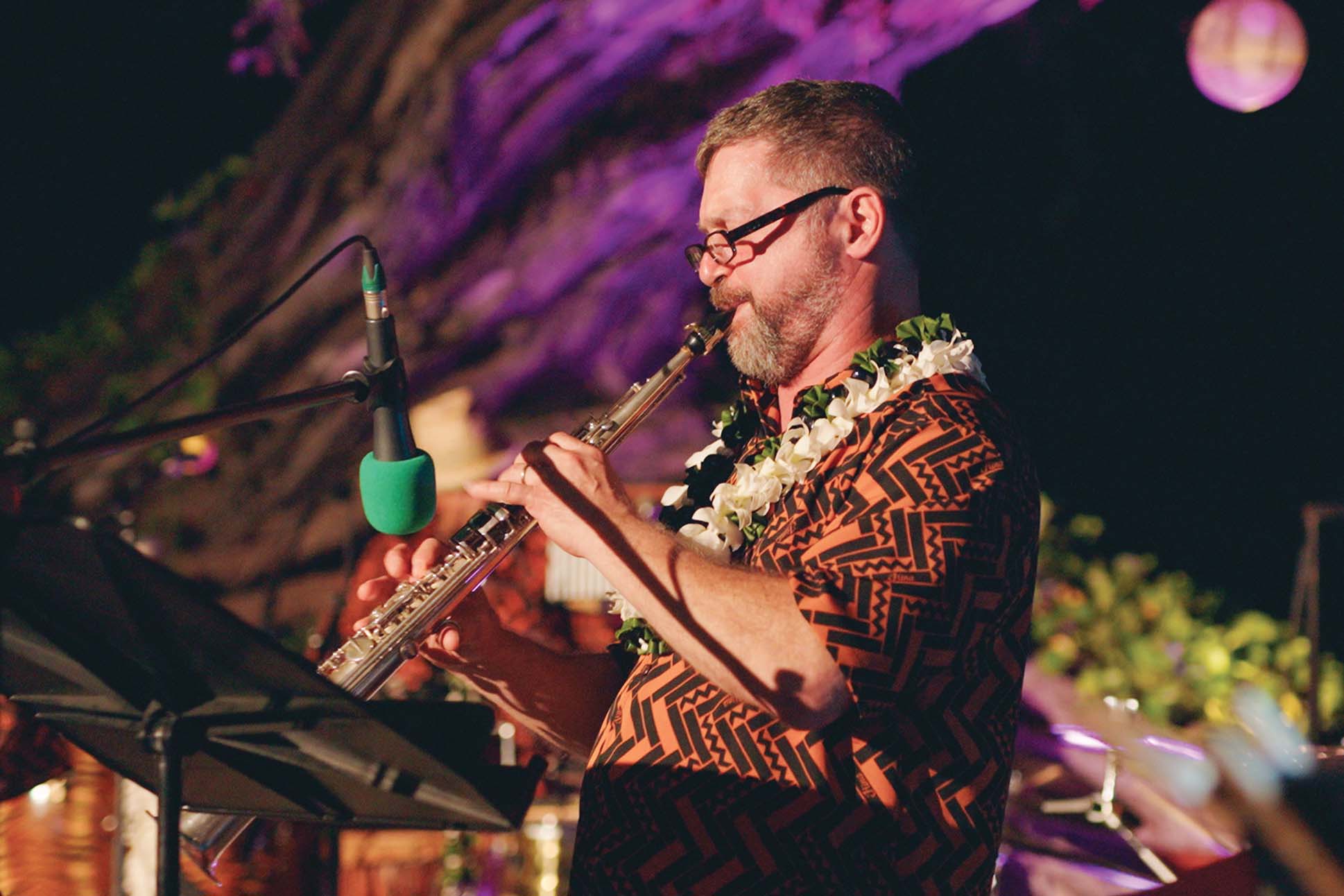
According to Wong, what distinguishes Waitiki from most modern neo-exotica acts is the group’s musicianship. Waitiki’s rotating cast of members are all virtuosos, some with deep connections to the genre, like percussionist August Lopaka Colón Jr., whose father was a founding member of Martin Denny’s band. It’s what allows the group to reproduce the sounds of the genre as they were played mid-century, during exotica’s heyday.
“It’s upright bass, not electric bass,” explains Wong, who also serves as president and CEO of the Hawaii Youth Symphony. “It’s piano and vibraphone, not synthesizer. It’s bird and animal sounds made by people, not by samples.”
At the House Without A Key show, the mood was relaxed and festive. Wearing matching aloha wear, the group riffed, jammed, improvised, and swayed their way through a setlist of covers and originals. Within a single song, Colón Jr. worked through a hodgepodge of percussive instruments—he had over 30 with him on stage—but the most striking sounds were the ones emanating from his throat. His assortment of bird calls soared above the lanterns hanging from the hotel’s iconic kiawe tree, piercing the night sky.
Later in the evening, Harold Chang, the last remaining member of the Martin Denny and Arthur Lyman group, was invited on stage. The crowd erupted into spirited applause as the 95-year-old drummer accompanied the group in playing “Quiet Village,” a lush exotica staple from Denny’s album Ritual of the Savage. A week later, Wong was still pinching himself.
For Wong, Chang’s presence and participation lent credence to Waitiki’s passion and purpose. “Some say exotica isn’t a culturally authentic art form because it’s not native,” Wong says. “But it has its own world and its own presence, and to have Harold there playing with us, it’s like he’s telling us what we’re doing is the right thing to do.”

